The Scientific Revolution and Political Changes in Early Modern Europe
1/48
There's no tags or description
Looks like no tags are added yet.
Name | Mastery | Learn | Test | Matching | Spaced | Call with Kai |
|---|
No analytics yet
Send a link to your students to track their progress
49 Terms
What model of the universe did Nicolaus Copernicus propose in 1543?
A heliocentric model, which is a sun-centered model of the universe.
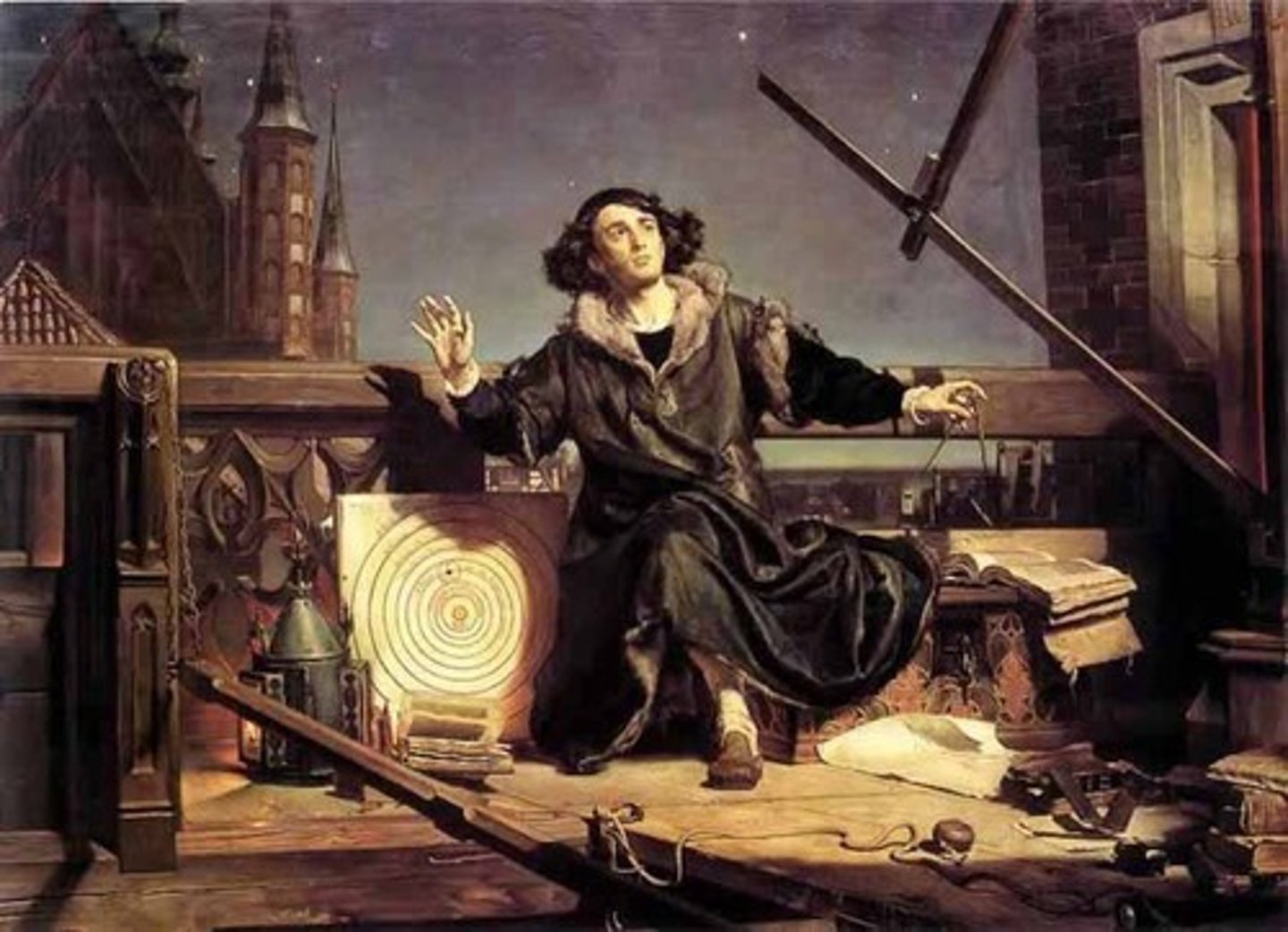
Why was Copernicus's heliocentric model rejected?
It called into question religious teachings of the time.
Who used Copernicus's data to calculate the orbits of the planets?
Johannes Kepler, Copernicus's assistant.
What significant astronomical discovery did Galileo Galilei make?
He used a telescope to observe celestial bodies, providing clear proof of their movement, including moons revolving around Jupiter.
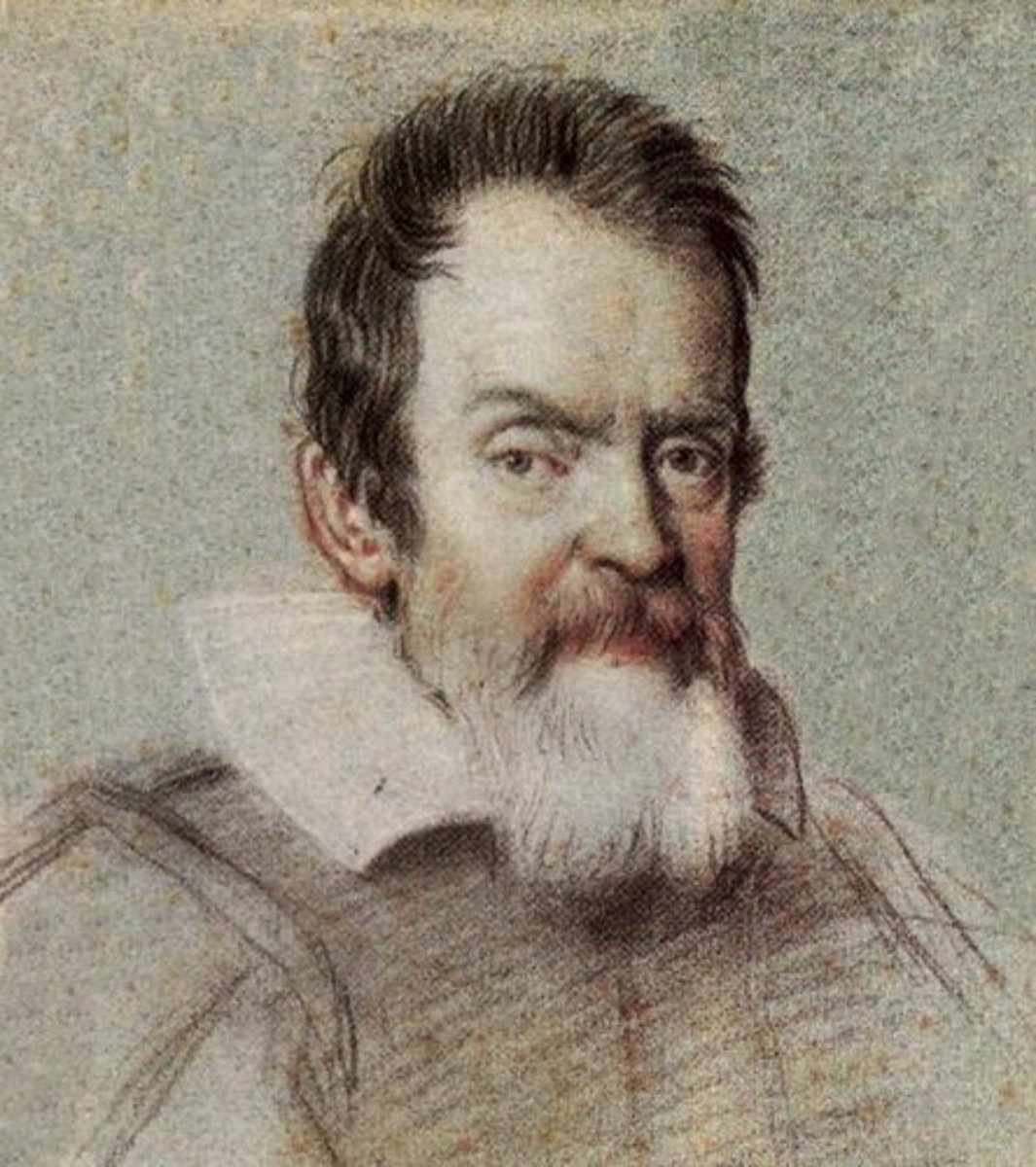
What happened to Galileo in 1633?
He was brought to the Inquisition and forced to publicly admit that the planets were motionless.
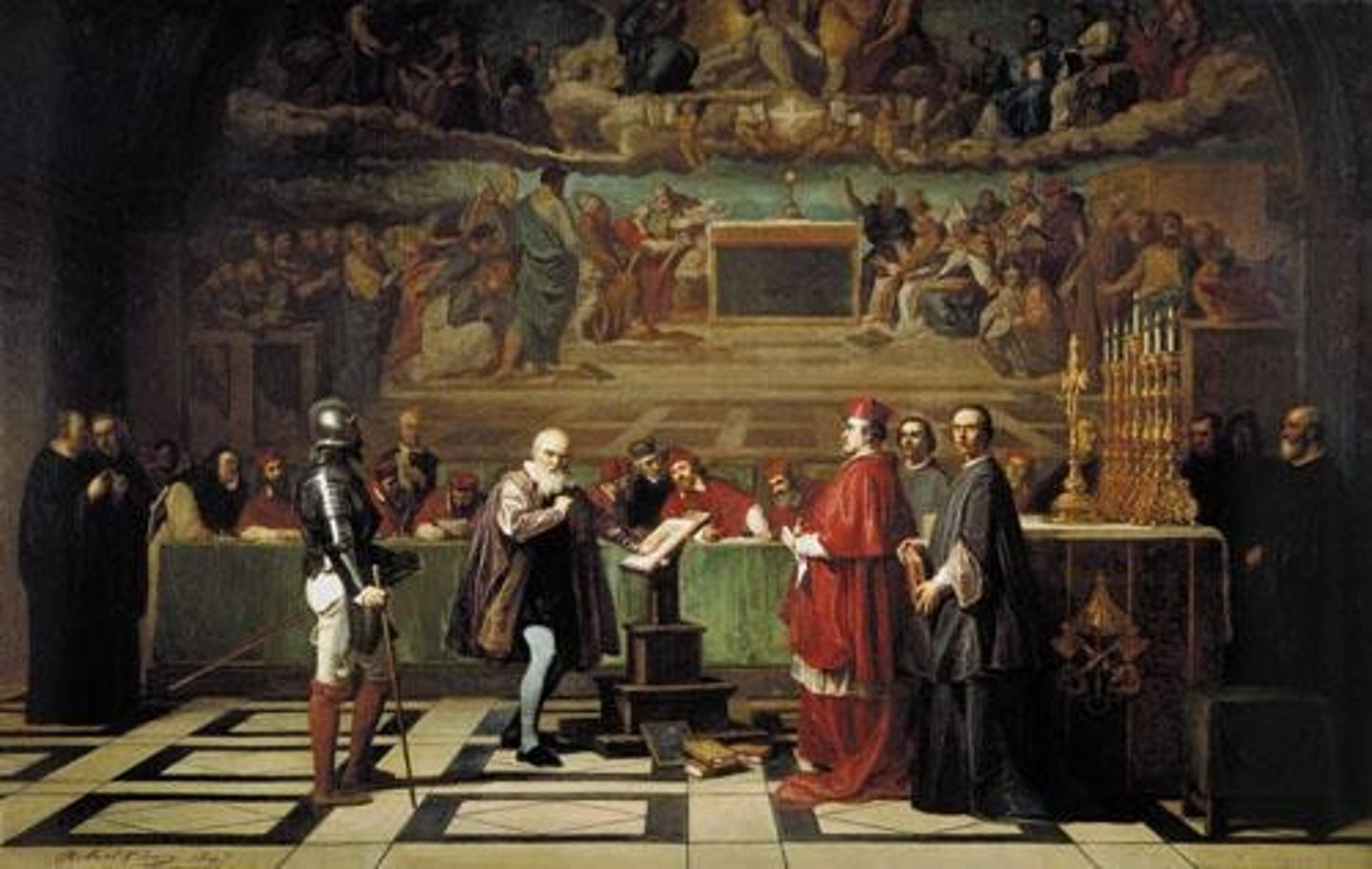
What major work did Isaac Newton publish in 1687?
Mathematical Principles of Natural Philosophy, which explained the laws of gravity.
What concept did Newton introduce regarding nature?
Nature follows uniform laws that can be explained mathematically.
What was Francis Bacon's contribution to scientific study?
He emphasized the use of experimentation to improve the quality of life and create new technology.
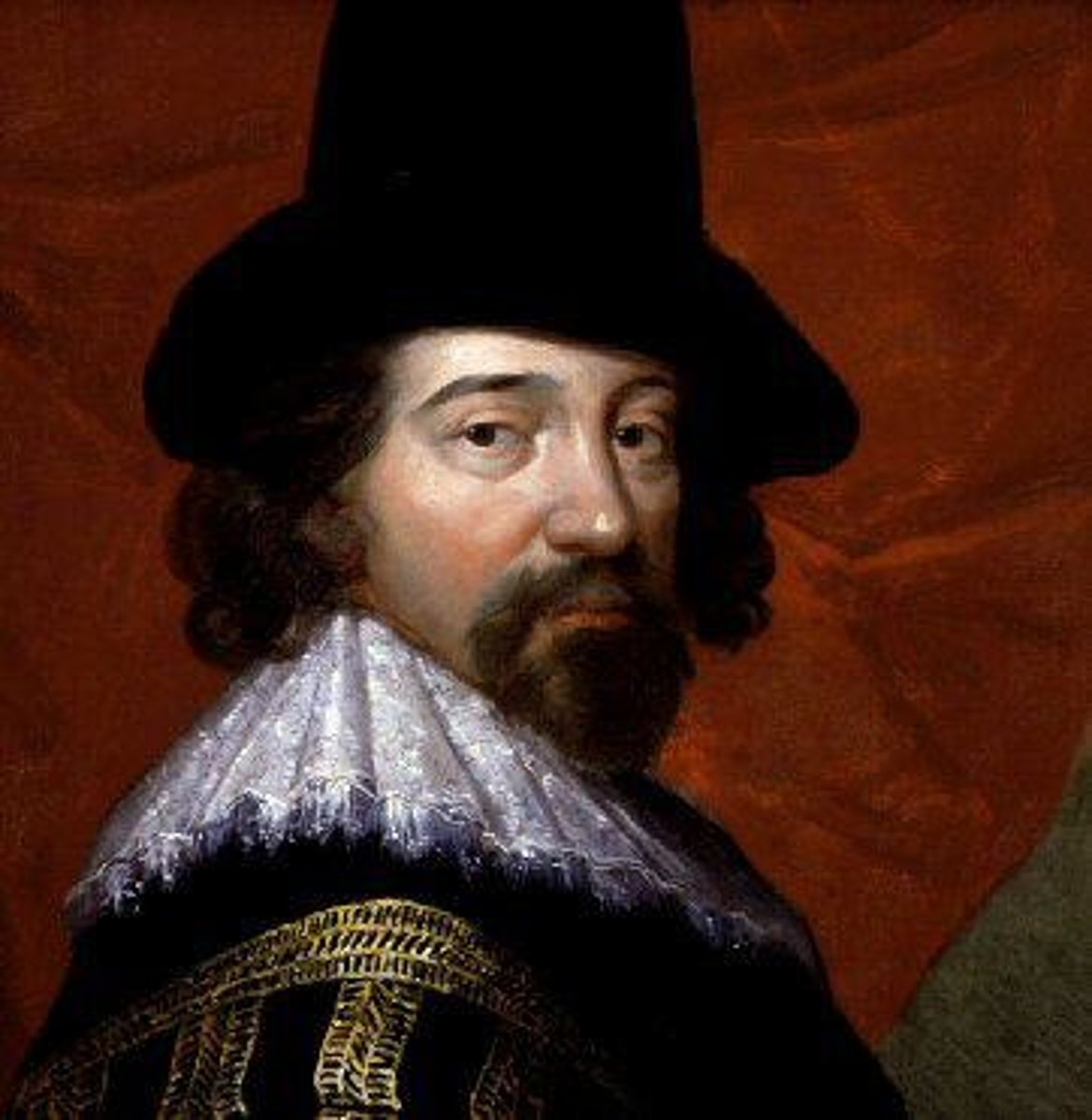
What philosophical approach did René Descartes advocate?
He promoted the use of reasoning to expand human knowledge, encapsulated in the phrase 'I think, therefore I am.'
What was the Edict of Nantes issued by Henry IV in 1598?
It granted religious freedom to Huguenots and aimed to heal the country after religious conflicts.
What is absolutism in the context of French monarchy?
A political system where one person, the king or queen, has all the power and makes all the rules without opposition.
Who appointed Cardinal Armand Richelieu as chief minister?
Louis XIII in 1624.
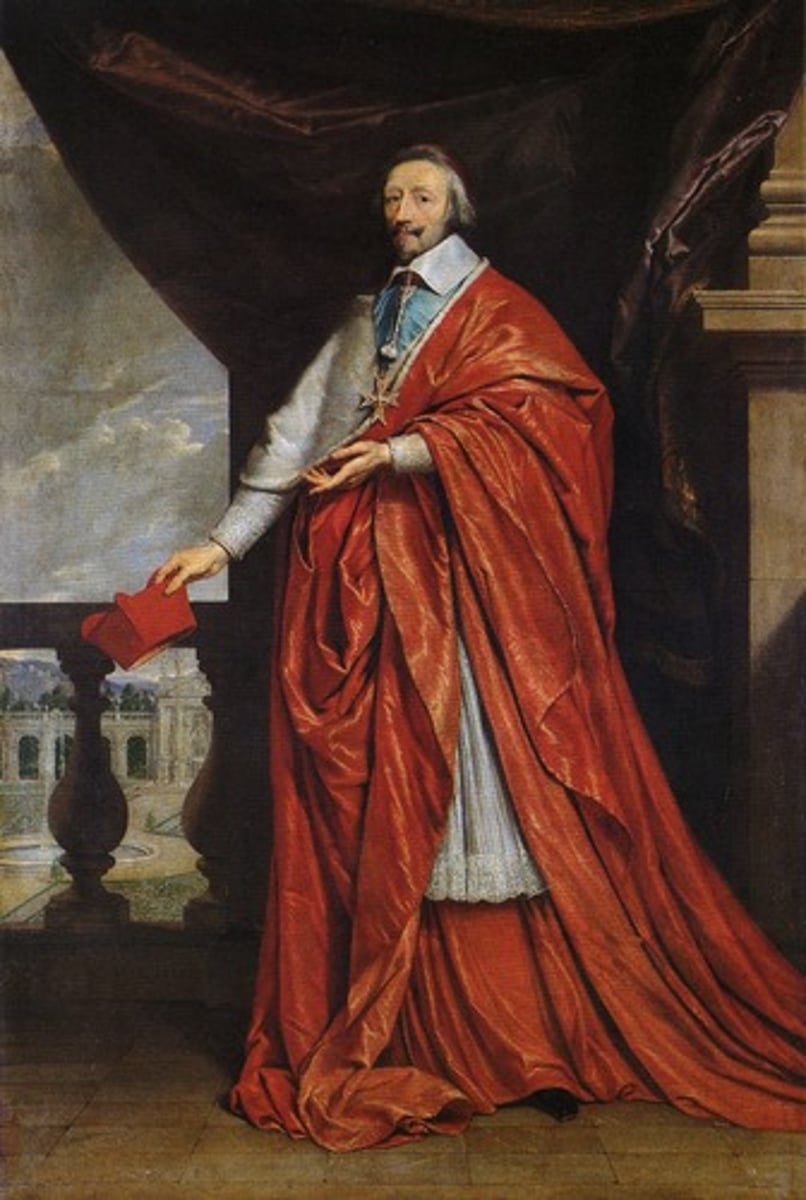
What was the Fronde?
An uprising involving nobles, merchants, peasants, and urban poor rebelling for different reasons.
What principle did Louis XIV believe in regarding his rule?
The divine right of kings, believing he was God's representative on Earth.
What was the role of the Estates General during Louis XIV's reign?
It was disempowered and did not meet from 1614 to 1789.
Who was Jean Baptiste Colbert?
An expert planner and economic strategist who built up French industries and made France the wealthiest state in Europe.
What was the significance of the Palace of Versailles?
It was transformed by Louis XIV into an elaborate castle filled with art and served as a center of royal power.
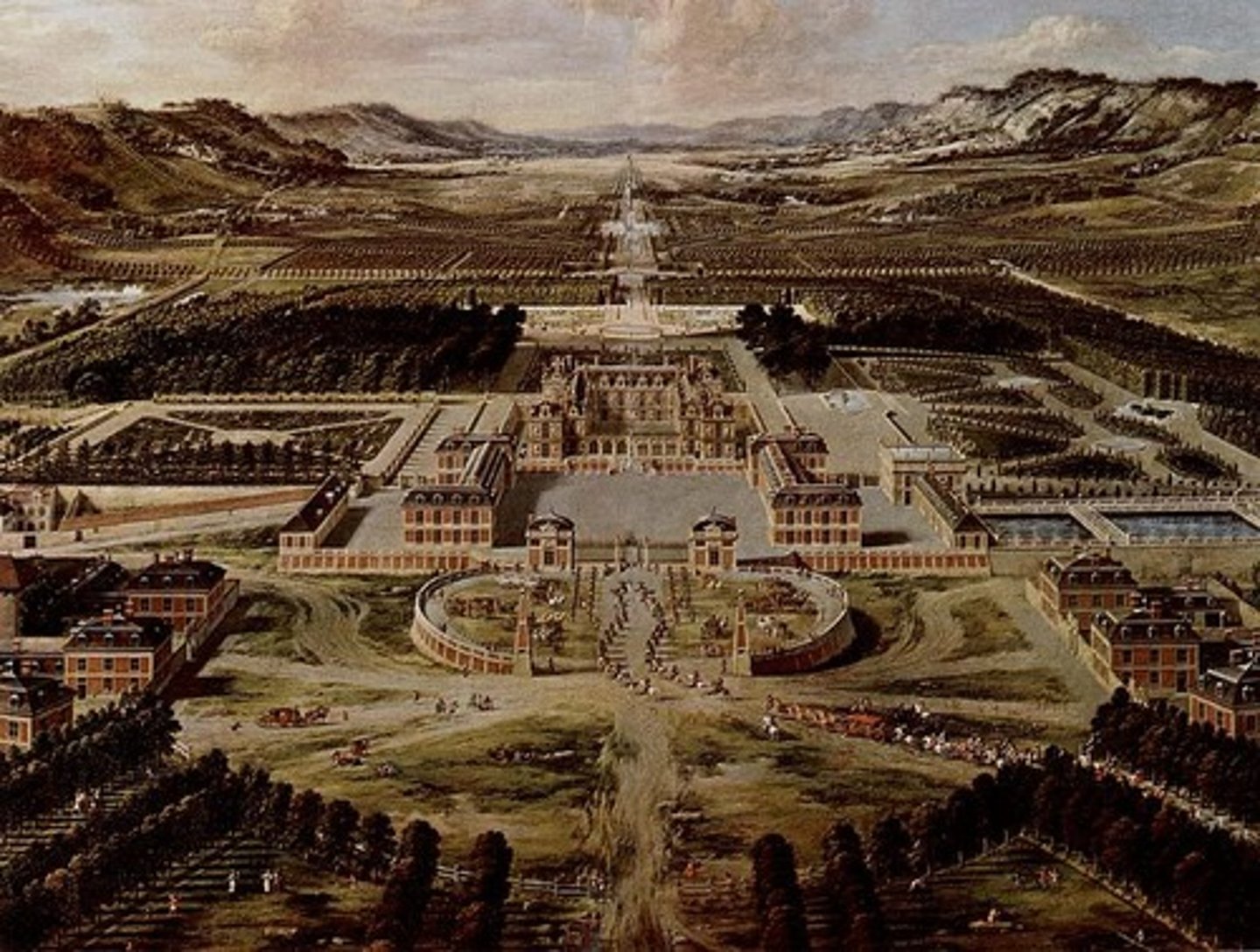
What ceremonial event began each day for Louis XIV?
La levee, a celebration of the king's rising.
How did Louis XIV control the nobility?
By keeping noble families at Versailles, preventing them from fighting for power.
What was the legacy of Louis XIV?
He ruled France for 72 years, the longest in French history.
What cultural standard did Louis XIV set in Europe?
He set a new standard for the arts.
What was a significant failure of Louis XIV in his policies?
He failed in both foreign and domestic policies.
What was the impact of Louis XIV's foreign wars?
Much of the wealth gained was wasted on foreign wars to expand French borders.
What happened in 1685 concerning the Edict of Nantes?
Louis XIV revoked the Edict of Nantes, leading to the persecution of Huguenots.
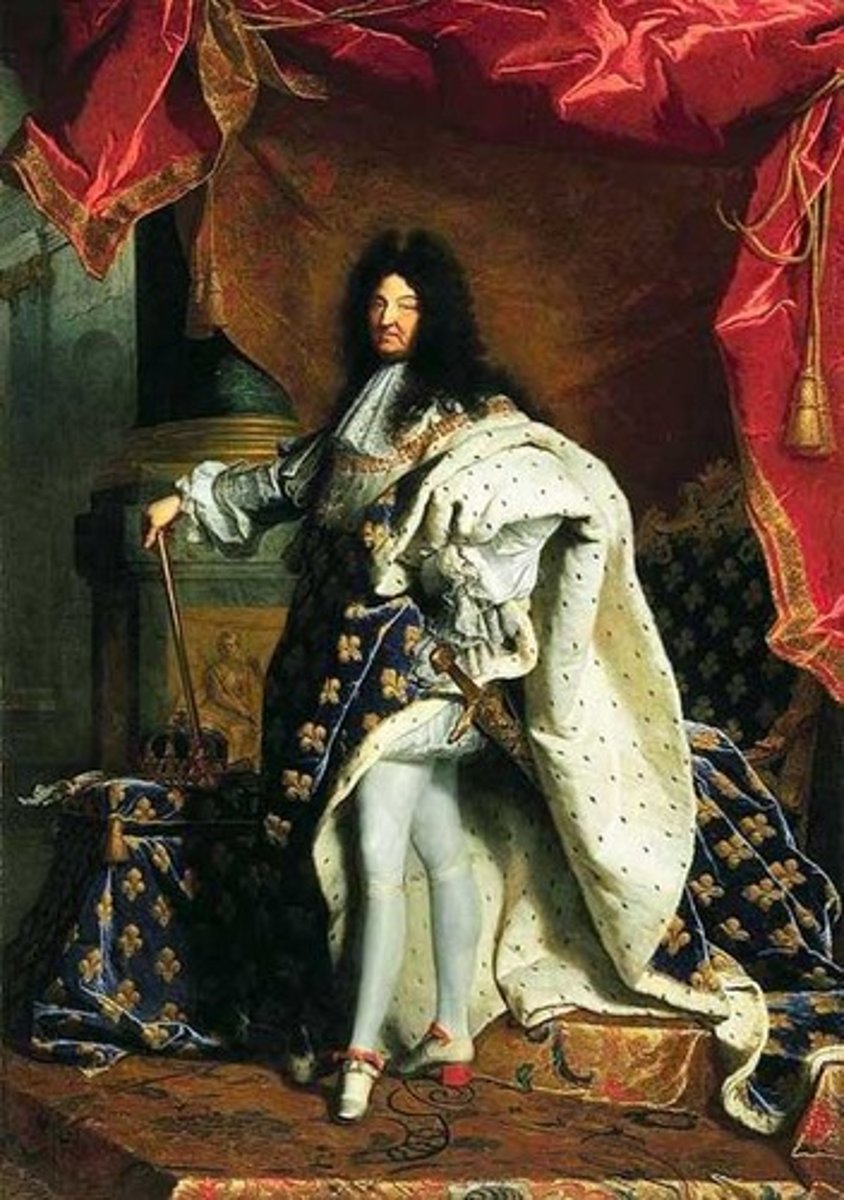
What was the consequence of the Huguenots fleeing France?
It had disastrous effects on the French economy as they were often from a hardworking middle class.
Who succeeded Louis XIV after his death in 1715?
His great-grandson, Louis XV.
How did England's monarchy differ from France's during the Tudor period?
England did not let the crown take over the country as France had.
What was the relationship between the Tudors and Parliament?
The Tudors were absolute monarchs but respected the power of Parliament.
What significant action did Henry VIII take regarding Parliament?
He sought Parliament's support against the Pope.
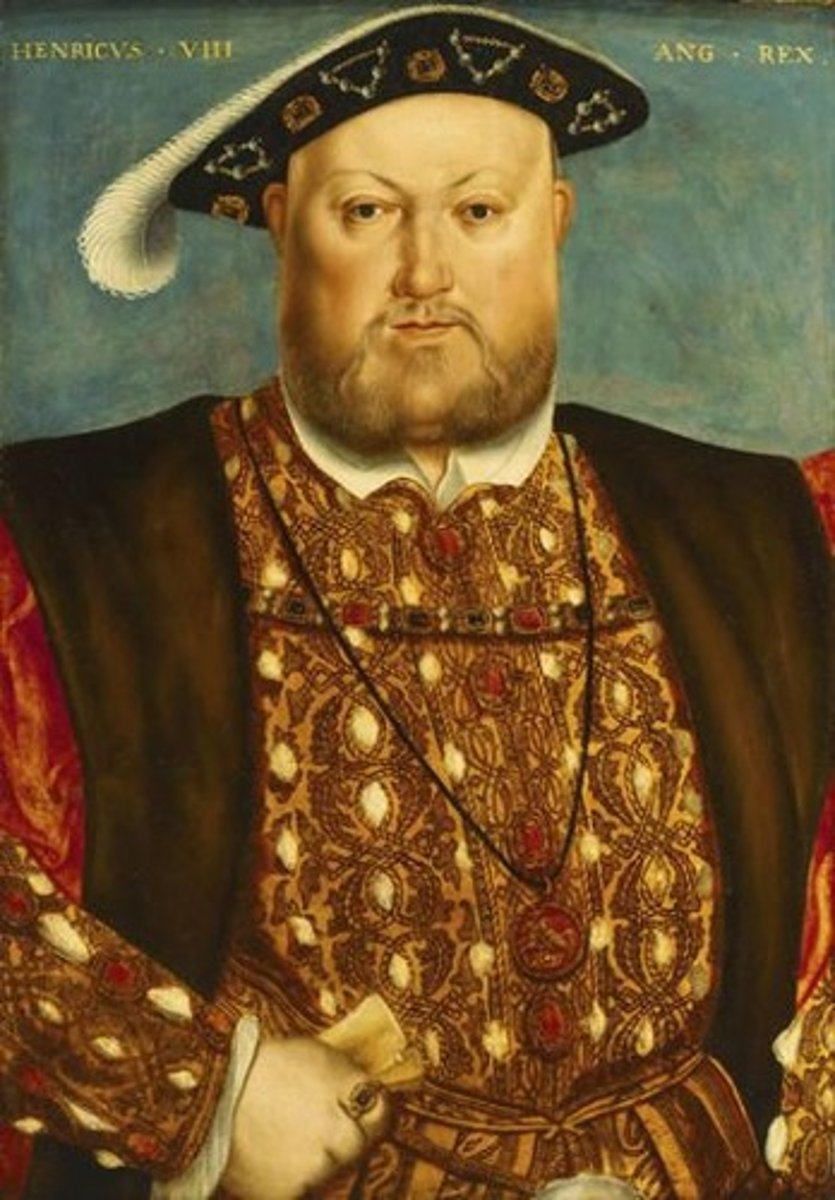
How did Elizabeth I interact with Parliament?
She consulted Parliament and controlled it effectively.
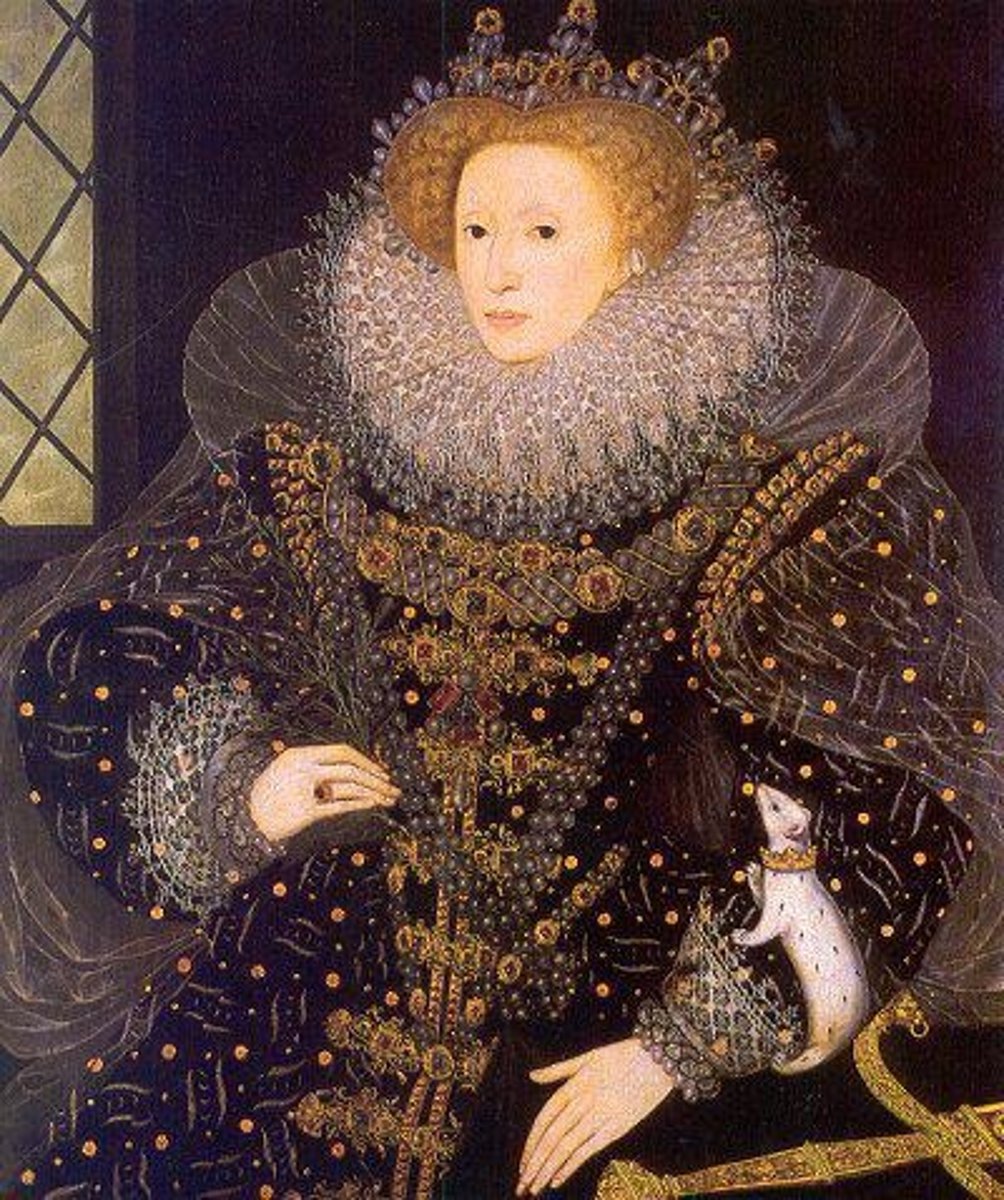
Who became the first Stuart king after Elizabeth I?
James I.
What was James I's view on divine right?
He believed in the divine right of kings and asserted that his power should not be disputed.
What did Charles I do when Parliament wanted to discuss foreign policy?
He dissolved Parliament and collected taxes himself.
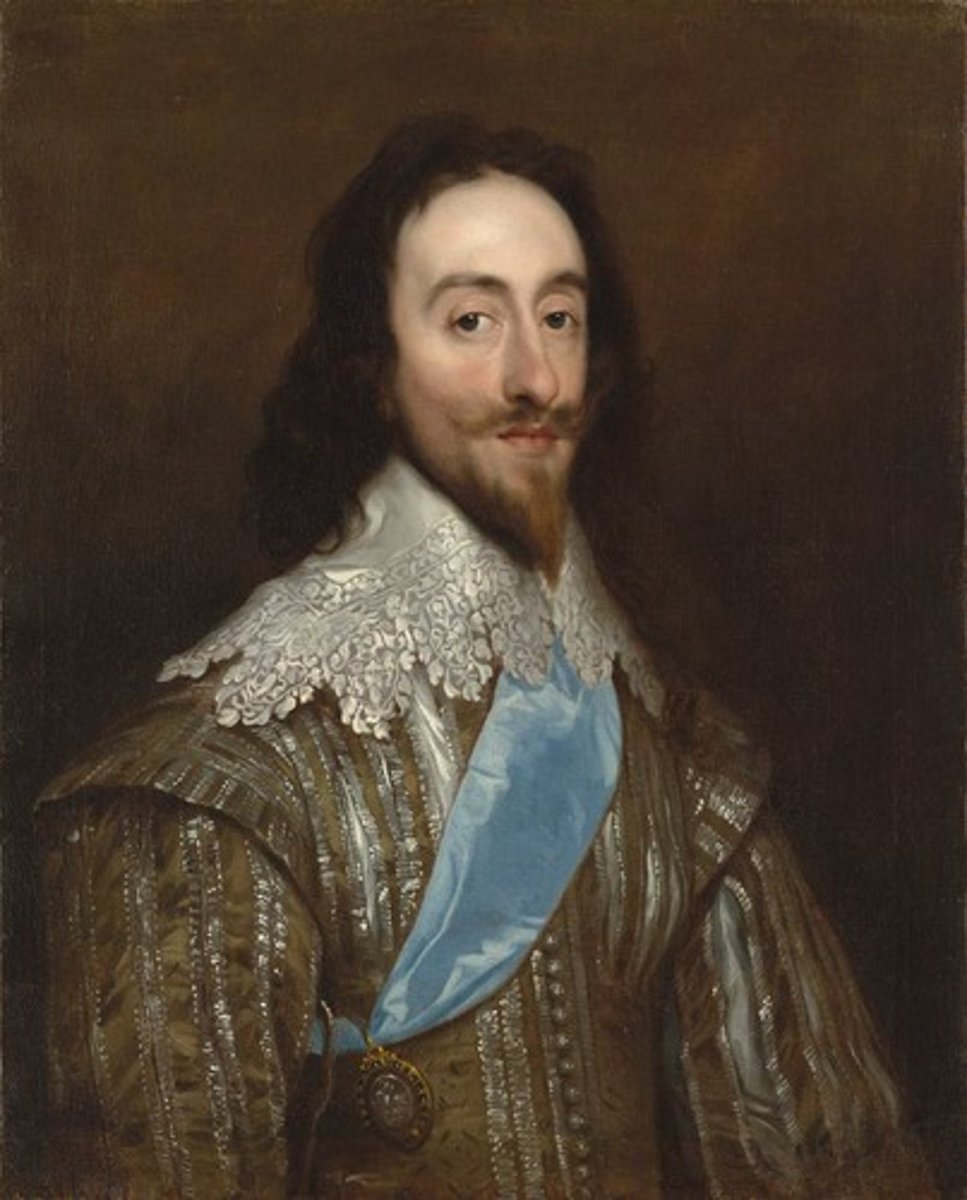
What was the Petition of Right?
It prohibited the king from raising taxes without Parliament's consent.
What happened when Charles I dissolved Parliament in 1629?
He ruled without Parliament until he was forced to summon it again in 1640.
What triggered the English Civil War?
Charles I attempted to arrest Parliamentary leaders in 1642.
What were the two opposing sides in the English Civil War?
Cavaliers (supporters of the king) and Roundheads (supporters of Parliament).
Who was the leader of the Roundheads?
Oliver Cromwell.
What significant event occurred in January 1649?
Charles I was executed.
What was the significance of Charles I's execution?
It was the first time a king had been killed by the people, establishing that no ruler could claim absolute power.
What did Cromwell's Republic abolish?
The House of Commons, House of Lords, Monarchy, and Church of England.
What title did Cromwell assume in 1653?
Lord Protector.
What was one of the social changes during Cromwell's rule?
Fun was outlawed, including dancing and music on Sundays.
What happened after Cromwell's death in 1658?
The people invited Charles II back from exile.
What was the outcome of the Glorious Revolution in 1688?
James II was exiled to France without bloodshed.
What document did William and Mary have to accept before their coronation?
The English Bill of Rights.
What did the English Bill of Rights establish?
It ensured the supremacy of Parliament over the monarchy and made it impossible for a Catholic to sit on the throne.
What type of monarchy did England become after the Glorious Revolution?
A limited monarchy, consisting of a legislature and a king.
What rights were ensured by the English Bill of Rights?
Rights of the people, no excessive punishment, and habeas corpus, meaning no one can be held in prison without trial.